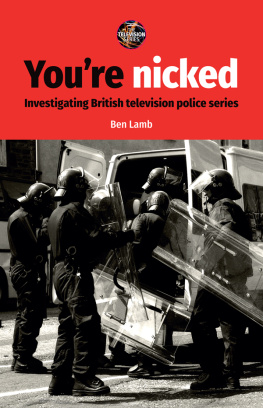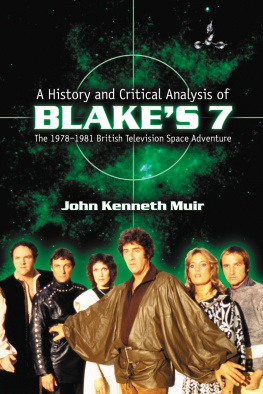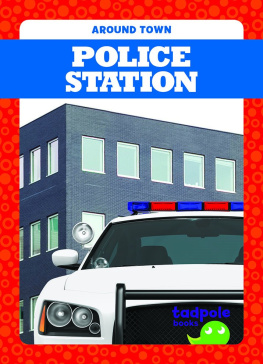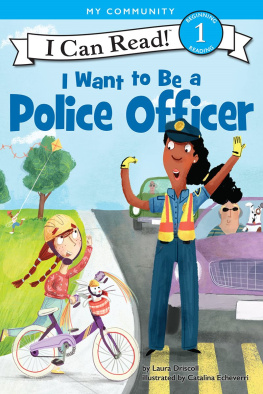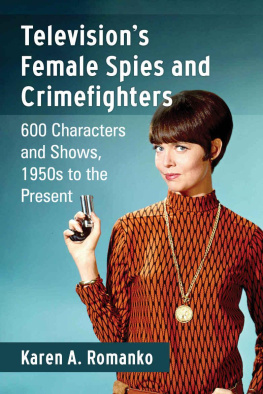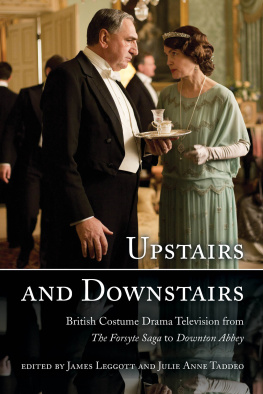series editors
jonathan bignell
sarah cardwell
steven peacock
already published
Paul Abbott beth louise johnson
Alan Bennett kara mckechnie
Alan Clarke dave rolinson
Jimmy McGovern steve blandford
Andrew Davies sarah cardwell
Tony Garnett stephen lacey
Trevor Griffiths john tulloch
Troy Kennedy Martin lez cooke
Terry Nation jonathan bignell and andrew oday
Jimmy Perry and David Croft simon morgan-russell
Lynda La Plante julia hallam
Jack Rosenthal sue vice
Joss Whedon matthew PAteman
TV antiquity Sylvie Magerstdt
Ben Lamb
Youre nicked
Investigating British television police series
Manchester University Press
Copyright Ben Lamb 2020
The right of Ben Lamb to be identified as the author of this work has been asserted by him in accordance with the Copyright, Designs and Patents Act 1988.
Published by Manchester University Press
Altrincham Street, Manchester M1 7JA
www.manchesteruniversitypress.co.uk
British Library Cataloguing-in-Publication Data
A catalogue record for this book is available from the British Library
ISBN978 1 5261 2585 9hardback
First published 2020
The publisher has no responsibility for the persistence or accuracy of URLs for any external or third-party internet websites referred to in this book, and does not guarantee that any content on such websites is, or will remain, accurate or appropriate.
Cover image: Dave Morris, Police at the G8 summit in Edinburgh, July 2005 (Flickr CC BY 2.0)
Typeset by Newgen Publishing UK
For PC John Lamb, Cleveland Polices finest
Contents
Television is part of our everyday experience and is one of the most significant features of our cultural lives today. Yet its practitioners and its artistic and cultural achievements remain relatively unacknowledged. The books in this series aim to remedy this by addressing the work of major television writers and creators, and important and interesting genres of programme. Each volume provides an authoritative and accessible guide that focuses on either a particular practitioners output or a body of related work, and assesses its contribution to television over the years. Books in the series give a carefully researched, historically based overview of the material addressed, and make a case for the importance of the work considered, by means of close textual analysis integrated with other materials. Many of the volumes draw on original sources, such as specially conducted interviews and archive material, and all of them list relevant bibliographic sources and provide full details of the programmes discussed.
In comparison with some related disciplines, television studies scholarship is still relatively young, and this series aims to contribute to this vigorous and evolving field. The series provides resources for critical thinking about television. Whilst maintaining a clear focus on writers, creators, and programmes themselves, the books in the series also take account of key critical concepts and theories in television studies. Each book is written from a particular critical or theoretical perspective, with reference to pertinent issues, and the approaches included in the series are varied and sometimes dissenting. Each author explicitly outlines the reasons for his or her particular focus, methodology, or perspective. Readers are invited to think critically about the subject matter and approach covered in each book.
Although the series is addressed primarily to students and scholars of television, the books will also appeal to the many people who are interested in how television programmes have been commissioned, made, and enjoyed. Since television has been so much a part of personal and public life in the twentieth and twenty-first centuries, we hope that the series will engage with, and sometimes challenge, a broad and diverse readership.
Jonathan Bignell
Sarah Cardwell
Steven Peacock
I am forever grateful to Stephen Lacey and Ruth McElroy for helping me overcome my imposter syndrome, through their research counsel, during the earlier stages of this book. I am indebted to Jonathan Bignell and James Chapman who, along with Stephen Lacey, created the Arts and Humanities Research Council-funded Spaces of Television research project that instigated this research. My thanks to Billy Smart and Leah Panos for their invaluable advice. Special thanks to Jeff Walden for his assistance in the location of relevant documents at the BBC Written Archives in Cavesham. I am also grateful to Alison Peirse and Charlotte Brunsdon, who encouraged me in the earlier stages of my academic career to progress to the next stage of study. Thanks to all those at the University of East Anglia, Teesside University, and Manchester University Press (Matthew Frost in particular) who took a chance on an early-career researcher. On a personal note I would like to thank Sophie Venables and our black Labrador Bagheera for their endless patience, love, and moral support. Finally, my parents have always been there to help me throughout my life. Without their encouragement to pursue my interests, none of this would have been possible. I can never thank them enough.
The uniforms will take us into parts of society that we usually dont enter.
Tony Garnett, producer (Garnett : n.p.)
The police series is a genre of British television drama that has captivated audiences for over sixty years. Its inclination to explore the more distressing aspects of British life, into which other forms of mainstream television often dare not venture, still manages to attract viewers in their millions. However, with the finale of Broadchurch (ITV, 20132017) peaking at 9.3 million viewers on Monday 17 April 2017, you could be forgiven for thinking that the genre is in decline. In comparison, The Sweeney (ITV, 19751978) regularly reached 20 million homes: thats 35 per cent of the then total British population, compared to Broadchurchs 14 per cent of the public in 2017. In essence, the nature of television broadcasting has changed and its audience has dispersed across a highly competitive and global, multichannel marketplace. Hundreds of channels, streaming services, and digital platforms are aggressively competing with one another, utilising algorithms to tailor entire services around our individual tastes. With the added luxury of being able to watch whatever content we want, whenever we want, on any device that we want, any programme that draws in viewers around the 10 million mark represents the most successful British television drama broadcast in the late 2010s.
Nevertheless, as a staple of British television schedules, police dramas have continuously operated as a Trojan horse with the potential to influence national debate. As expressed by producer Tony Garnett (above), often the most commercially successful and critically revered police series utilise a clear iconography and set of themes. Popular with both broadcasters and audiences this recognisable format can expose the effects disenfranchised communities experience from broader socio-economic changes. Such a genre possesses the capability to reveal how national strategies employed by the Government to tackle inequality, and the perceived relationship between poverty and crime, impact upon the British publics relationship with its police force. Therefore police officer characters can be used as an incidental means of exploring transformations to traditional class identities; class relations; and the dynamics of social, economic, and gender inequality.

